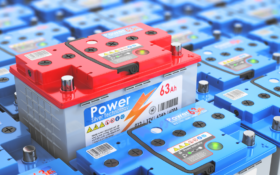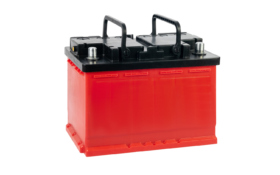Camel Group, a Chinese lead-acid battery manufacturer, is suing the US Government for being blacklisted under allegations of using forced labour in China.
It named the US Department of Homeland Security as a defendant in a lawsuit filed last month to the US Court of international Trade, among other US governmental bodies.
Camel opened a $20 million factory less than two years ago at Battle Creek, west of Detroit. But in 2023 it was added to a list under the Uyghur Forced Labour Prevention Act. This list currently has more than 50 Chinese companies.
It is the first company to go through the administrative process to reverse the decision.
The battery maker, which has more than 7,000 employees globally, argues in the lawsuit this was a “scarlet letter” that stopped the company from doing any business. It alleges it has lost $100 billion in business.
Camel is one of China’s largest battery producers and supplied batteries to companies like General Motors, Ford Motor, Stellantis and Hyundai among others in 2022. It is unknown who it is still supplying batteries to.
Camel denies ties to forced Uyghur labour, allegations first discussed in a report from December 2022 by Sheffield Hallam University.
It states that Camel has subsidiaries that operate in the Xinjiang region where Uyghur Muslims reside, and China is accused of repressing.
Camel said in its lawsuit that no evidence of this was provided by US authorities when it was blacklisted.
Customs and Border protection, which are named as a defendant, told Automotive News that its official arguments will be part of the court docket.
The lawsuit said: “Camel Group continues to accumulate commercial damages and reputational harm each day it unfairly remains on the UFLPA Entity List without explanation.”
The defendants will have until 18th March to respond to the lawsuit.












